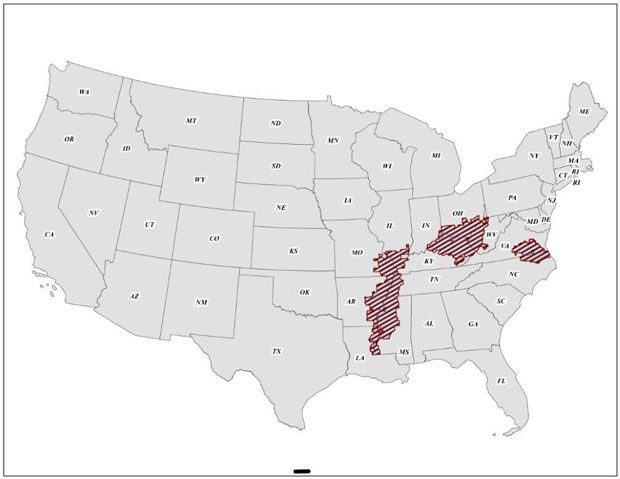Colon Cancer Death Rate Declining Across America Except In 3 'Hot Spots': Living In The Wrong Zip Code Could Kill You

Today, fewer people are dying from colon cancer. But as rates are dropping throughout the country, the likelihood a colorectal cancer diagnosis will lead to a patient’s death largely depends on their area code. After analyzing colon cancer death rates throughout the United States, researchers from the American Cancer Society realized there were three regions which lagged behind the rest of the country.
"These three 'hot spots' for colorectal cancer in the U.S. demonstrate what can happen in the event that effective screening is not in place or not available," Scientific Advisor for a cancer initiative Dr. Raymond DuBois, who is also an executive director at the Biodesign Institute at Arizona State University, told HealthDay News. "It illustrates some of the problems overall with the U.S. health care system, in which there is such highly variable care delivered in different regions of the country.”

The findings, published in the journal Cancer Epidemiology, Biomarkers & Prevention, revealed the rates of colon cancer deaths were highest in 37 counties in eastern Virginia/North Carolina, 94 counties in the lower Mississippi Delta region, and 107 counties in west-central Appalachia. The researchers used geospatial mapping software to highlight the highest death rates between 1970 and 2011. The Mississippi Delta had deaths rates 40 percent higher than non-hot spot regions, 18 percent higher in west central Appalachia, and nine percent higher in eastern Virginia/North Carolina.
Education and access to screening are to blame according to experts, but the problem is largely reflective of the health care system that goes beyond the concentrated rates of colon cancer. Death rates have dropped by more than half throughout the U.S., but these few regions remain stubbornly high because of the lower quality of health care interventions in the area.
"Although we've made great strides against colorectal cancer in a fairly short time period, there are a lot of vulnerable populations that aren't benefiting," the study’s lead author Rebecca Siegel, the director of surveillance information at the American Cancer Society, said in a press release. "Now that these groups have been identified, there is a moral obligation to do something about it."
Colorectal cancer develops in the colon and rectum, the lower part of the body’s digestive system. Although colon cancer is the third most common type of cancer in both American men and women, the amount of people who die from the cancer has decreased thanks to colonoscopies and fecal occult blood tests, according to the National Institute of Cancer. The screening is key to saving lives because it gives doctors the opportunity to catch polyps that form on the inner wall of the colon or rectum before they turn into cancerous lesions and tumors.
"Targeted interventions, like using people within the community to talk to their neighbors about screening, are likely to be effective," Siegel said. "We know interventions work because we have an example in Delaware, where they implemented statewide colorectal cancer screening and effectively eliminated disparities in less than a decade."
Source: Siegel R, Sahar L, Robbins A, and Jemal Ahmedin. Where Can Colorectal Cancer Screening Interventions Have the Most Impact? Cancer Epidemiology, Biomarkers & Prevention. 2015.
Published by Medicaldaily.com



























